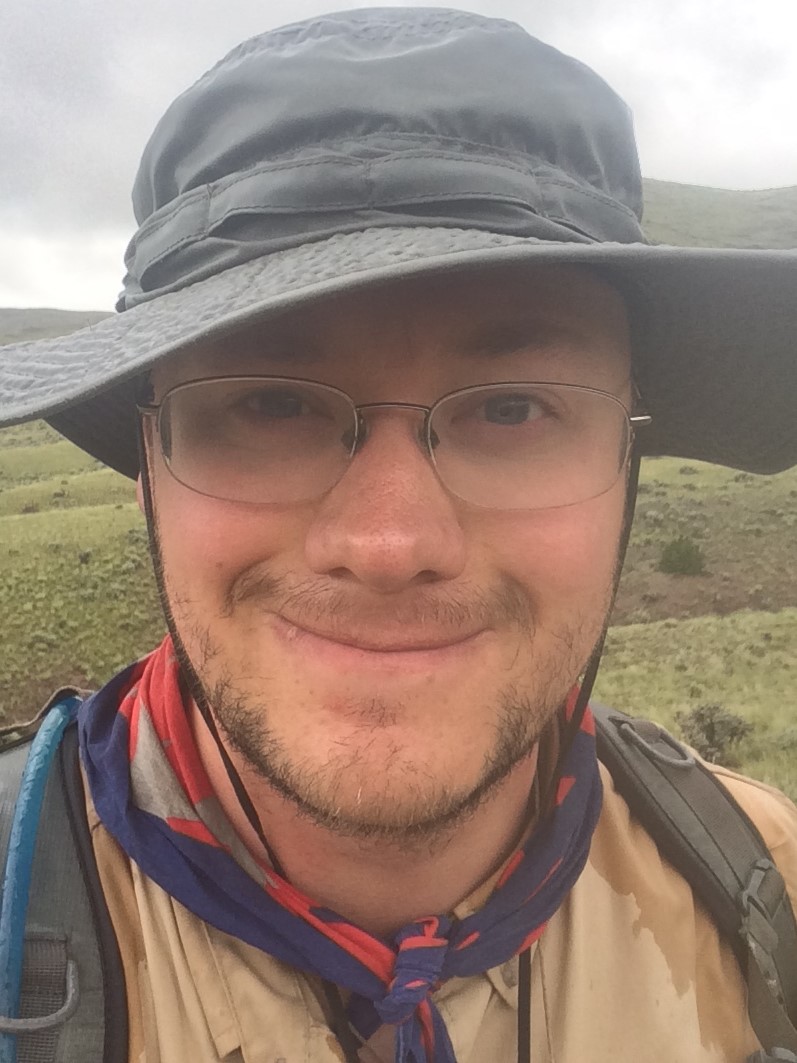David Birlenbach
Department of Earth and Environmental Sciences PhD Candidate and XRCT Lab Manager
Email: [email protected]
Hi! Welcome to my corner of the Fox Research Group webpage. I'm a PhD candidate in the Department of Earth and Environmental Sciences interested in ecology, evolution, geology, and STEM education. Before joining the University of Minnesota, I received a Master of Science from the School of Integrative Biology at the University of Illinois, supervised by Jonathan Marcot. Prior to that, I received Bachelor of Science degrees in Biology and Earth and Space Sciences with minors in Chemistry and the History of Science, Technology and Medicine (what can I say, I have broad interests and love to learn!).
Peruse the tabs below to learn more about my interests in and record of research, teaching, and outreach, as well as my new role as a manager of the XRCT lab.
I am broadly interested in the intersection of evolution and ecology. My doctoral studies focus on identifying and understanding the effects of competition in the fossil record. In particular, I am looking at how the arrival of rodents at the end of the Paleocene (~57 million years ago) affected endemic fauna with which they are hypothesized to compete. In addition, I use modern competitive relationships to test the validity of inference methods being applied identify competitors in the fossil record.
I am also interested in the relationship between an organism's morphology and its ecology. This has led to projects that deal with how we can use shape and morphological features to predict aspects of an organism's niche, including its diet, size, and locomotion. One of the ultimate goals of this research is to apply our understanding to the fossil record to better understand the ecology of extinct organisms, and how it changes over time.
Another facet of my research utilizes open source and published data to understand large scale community changes through time. My Master's thesis at the University of Illinois identified changes in community structure of North American terrestrial mammals during the Paleocene and Eocene epochs (~66-34 million years ago). Recent projects have looked at how different ecological groups responded to the changing climate since the Last Glacial Maximum.
Prior to my graduate studies, I received Bachelor of Science degrees in Biology and Earth and Space Sciences at the University of Washington. While there I assisted research in carbonate purification methods for clumped isotope thermometry as well as volunteered in the Burke Museum collections. Working in both an isotope laboratory and a museum collections setting were formative experiences and I hope to expand my research to return to those settings.
I have also had the pleasure of working with collaborators on various projects related to systematics, evolutionary rates, and science education. I'm eager to form new collaborations and excited to work with undergraduate researchers on independent projects. If you're interested in collaborating don't hesitate to let me know!
Education has been central in my professional development and career. It has been my pleasure to teach students from a wide variety of backgrounds, in a range of settings, and at all levels of undergraduate education, who continue to motivate me to become a better scientist and educator. Below I highlight the courses I've taught as an instructor, teaching assistant, and guest lecturer.
As an instructor:
University of Puget Sound (Visiting Assistant Professor)
GEOL 303 - Earth Surface Systems and Processes (Fall 2022)
University of Minnesota (Instructor)
ESCI 1012: Natural Hazards and Disasters (Fall 2019/2021* and Spring 2022)
University of Wisconsin River Falls (Associate Lecturer)
GEOL 101 - Introduction to Geology (Fall 2019)
GEOL 150 - Geological Perspectives on Global Change (Spring 2019/2020*)
GEOL 269 - Environmental Geology (Fall 2019 and Spring 2020*)
GEOL 450 - Paleontology (Fall 2018)
As a teaching assistant:
University of Minnesota
ESCI 3303: Geochemical Principles (Fall 2020*)
ESCI 1003: Dinosaurs and Our World (Spring 2018)
ESCI 3911: Introductory Field Geology (Summer (2015/2016/2017/2018)
ESCI 2202: Earth History (Spring 2015/2016/2017)
ESCI 1007: From Microbes to Mammoths: History of Life on Earth (Fall 2014)
School of Integrative Biology, University of Illinois at Urbana-Champaign
IB 150: Organismal and Evolutionary Biology (Spring 2012)
IB 106: Extinction: From Dinosaurs to Dodos (Fall 2012/Spring 2013)
* Denotes course was taught online
As a guest lecturer:
University of Minnesota
ANTH 5113/8113: Primate Evolution (Spring 2019) “Plesiadapiformes”
ESCI 2202: Earth History (Spring 2017) “Late Paleozoic Plants and Tetrapod Evolution”
Carleton College
GEOL 230: Paleobiology (Spring 2017) “The Evolution and Ecology of Paleocene Fauna”
I'm deeply passionate about outreach and service, and feel that scientists have a responsibility to engage with their community. My first coauthored publication was on the importance of broader impacts in science and a recommendation for broader impacts training in graduate education (Heath et al., 2014). Over the course of my career thus far, I have been able to collaborate with educators in the Twin Cities area to organize scientist visits to K-12 schools as well as student visits to the University of Minnesota and University of Wisconsin River Falls for laboratory tours, fossil collection visits, and High School Science Olympiads. I have also partnered with local institutions like the Bell Museum to help design and lead museum outreach events as well as create distributable teaching materials for K-12 educators. I'm always looking for more opportunities to engage in outreach and community service. If you are interested in partnering with myself or with the Department of Earth and Environmental Sciences X-ray Computed Tomography Laboratory, please let me know via email.
